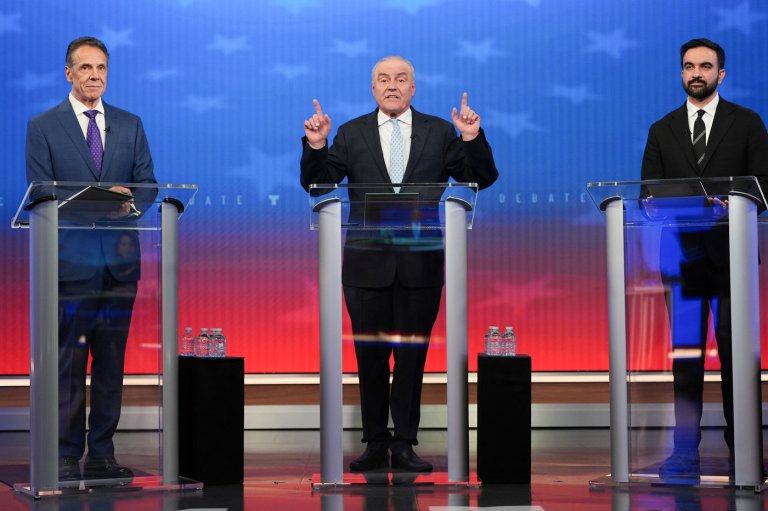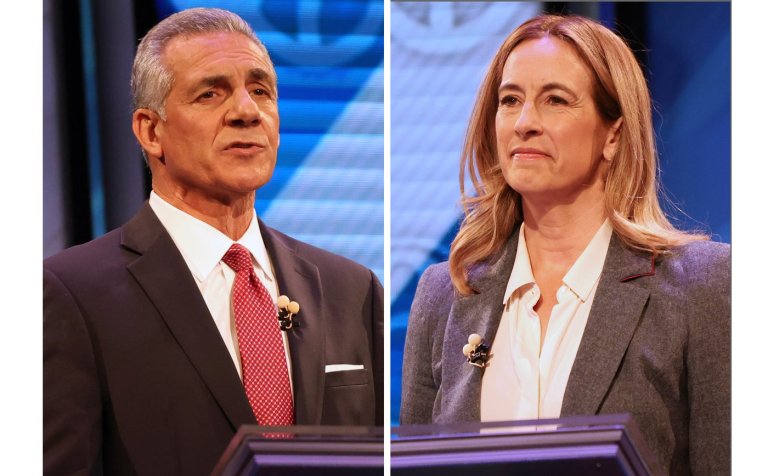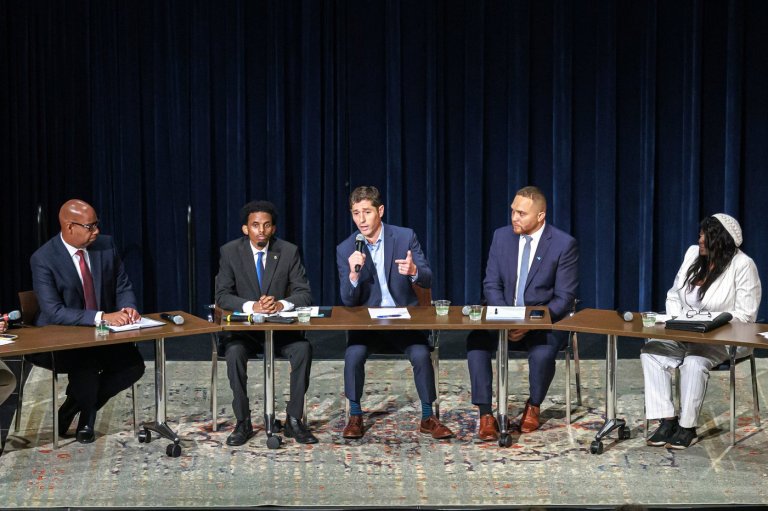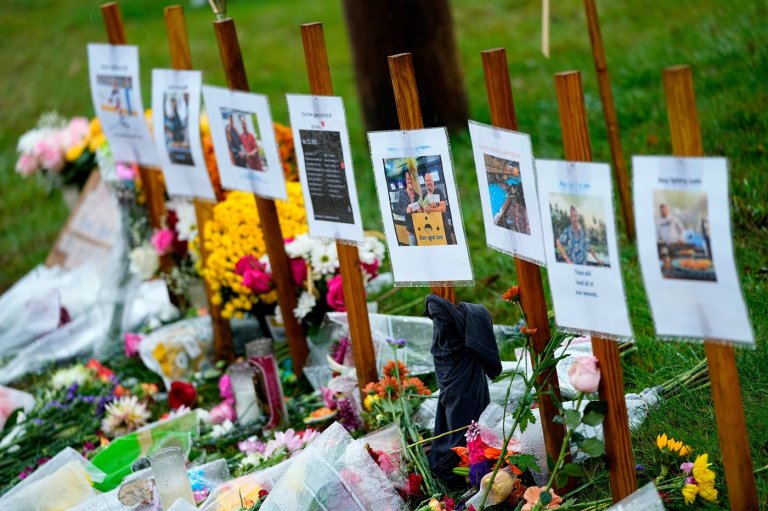Ottawa urged to keep Canadian weapons out of Sudan’s civil war
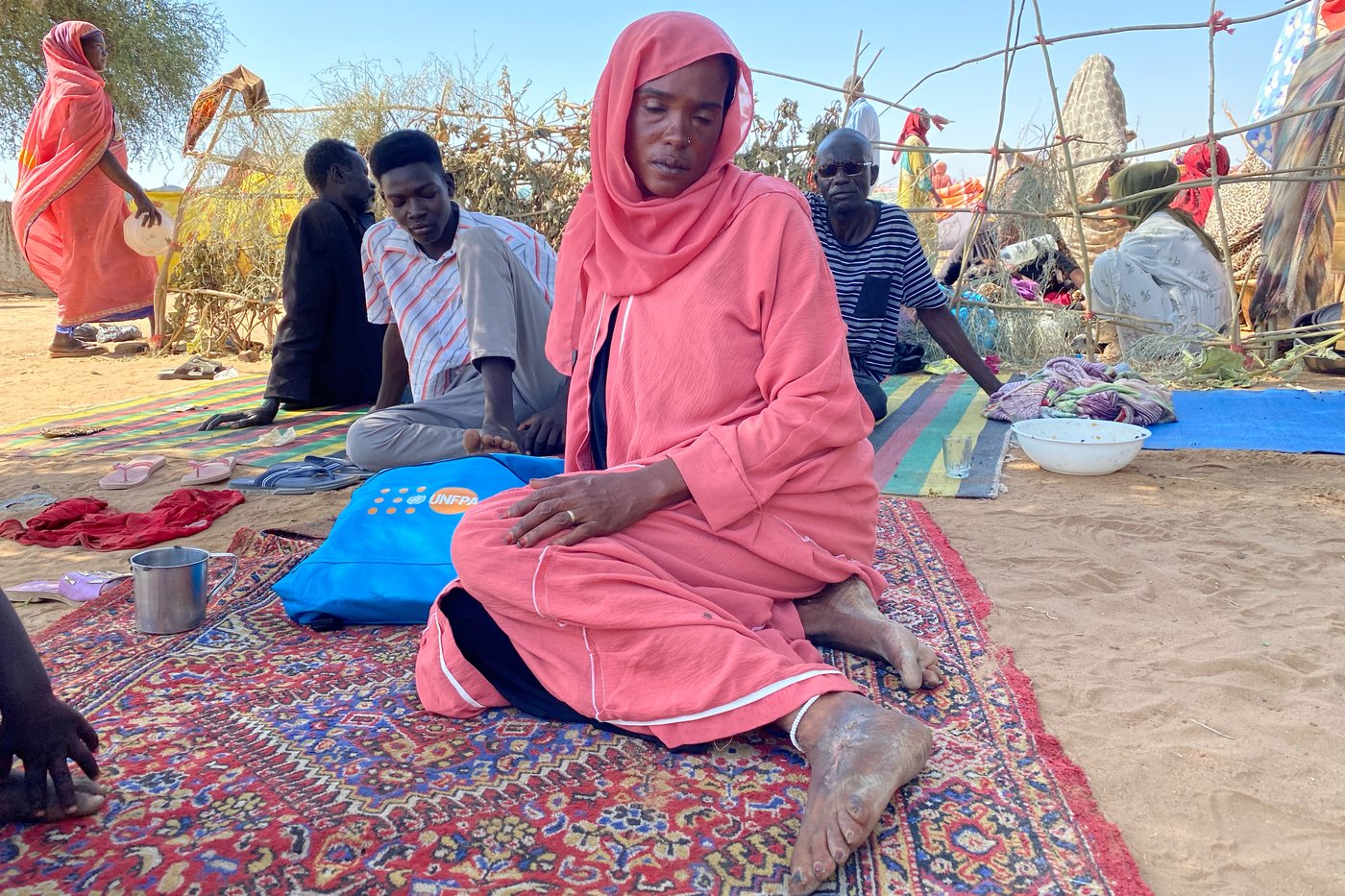
OTTAWA — As Prime Minister Mark Carney prepares to visit the United Arab Emirates, human rights advocates are calling on his government to do more to stop the flow of weapons from the UAE to a militia in Sudan committing atrocious acts of ethnic violence.
While the UAE insists it isn’t arming the Rapid Support Forces militia, numerous human rights groups say they believe planes meant to carry humanitarian aid from the UAE to Sudan are regularly delivering weapons instead.
Some groups say they believe these shipments include Canadian-made arms.
“Governments like Canada have both an opportunity to show what the values that we speak of these days so loudly, what they actually mean when they’re put to test,” said World Vision Canada’s policy director Martin Fischer.
“Canadian-made weapons and components are fuelling conflict in Sudan. And it really isn’t sufficient for the government to say that the existing arms-export regime is world-class, when reality shows that it’s very different.”
Carney said on Oct. 16 that he “will be travelling to the UAE on the way to the G20” summit, which takes place Nov. 22.
Civil war between Sudan’s army and the Rapid Support Forces erupted in April 2023. The paramilitary RSF succeeded the Janjaweed militia which undertook the first Darfur genocide between 2003 and 2005.
Both warring parties have blocked the entry of humanitarian aid. The war has put more than 30 million people in desperate need of aid, including 16 million children.
“That’s more than a quarter of Canada’s population, in terms of kids requiring some form of assistance,” Fischer said.
It’s also created the world’s largest displacement crisis, counting those moving within Sudan and refugees in neighbouring countries.
The UAE government has been accused repeatedly of arming the RSF — claims it has strenuously denied, despite the UN Panel of Experts on the Sudan deeming these reports “credible.”
In its last days in office this January, the administration of U.S. President Joe Biden said the RSF was committing a new genocide in the Darfur region. Canada has not described the violence as a genocide.
The U.S. imposed sanctions on parties in Sudan and on companies in the United Arab Emirates accused of providing arms to the militants with government support.
Atrocious violence has taken place within the past month. The World Health Organization reported that the RSF attacked a hospital in the Sudanese city of el-Fasher on Oct. 28, killing hundreds of patients and kidnapping multiple health workers.
Videos posted online showed hospital rooms pocked with bullet holes.
Yale’s Humanitarian Research Lab reported last week on satellite images that it says show pools of blood in el-Fasher, suggesting mass killings at multiple sites. Online videos show dozens being murdered by militia members.
“Canada is horrified by the attacks in el Fasher and condemns the reported mass killing of over 2,000 civilians,” Foreign Affairs Minister Anita Anand posted Oct. 28 on the platform X.
“We urge all parties to uphold international law, protect civilians, and allow the unimpeded passage of humanitarian aid immediately.”
Anand has said she plans to visit the Gulf region in early 2026.
Fischer said the ethnic violence is producing horrifying stories.
“They’re facing armed checkpoints, extortion, looting and really concerning and alarming reports of sexual violence along the escape routes, if they can escape,” he said.
He argues Ottawa should work with allies to pressure both sides to allow aid in, and consider boosting its own aid contribution.
Ottawa has already pledged $103 million in aid to Sudan since the conflict started.
Fischer also said Canada should tighten its laws to make sure export permits don’t allow Canadian arms to be diverted to Sudan. Canadian firms exported $7 million in arms to the UAE last year.
“There is room, and need really, to clean up our own house,” he said.
Canadians for Justice and Peace in the Middle East has called on Ottawa to halt all arms exports to the UAE to prevent their diversion to Sudan, and to investigate whether that is already happening.
The group notes numerous reports that arms deployed in the conflict were supplied by the Streit Group, a company founded in Canada that appears to have relocated to the UAE. The company did not respond to a request for comment.
Sudanese Canadian groups have been calling on Canada for months to impose more sanctions and consider a terrorism listing for the RSF. Some cited those calls in testimony Monday before the House subcommittee on international human rights.
McGill University professor Jon Unruh also testified that the UAE is getting “conflict gold” from Darfur in exchange for arming the RSF, and could eventually be seeking land for agriculture.
“There’s a very large economic aspect to this,” he said, adding Canada could leverage its membership in the OECD group of mostly rich countries to push the UAE to comply with the group’s 2016 policy on minerals that come from conflict zones.
“Canada can employ coercive pressure to the UAE … to try to pinch off the gold supply from Darfur to the UAE, thus supplying the RSF with weaponry,” he said.
Other committee witnesses testified that the Sudanese Armed Forces is also committing human rights abuses and may be receiving arms from Iran and affiliates of the Muslim Brotherhood.
Doctors Without Borders says it’s seeing both infants and adults with acute malnutrition. The group’s representative in Canada, Michael Lawson, testified that is rare and indicates a widespread siege.
Lawson said shocking cases of sexual violence and torture have been reported by patients at the group’s hospital in the town of Tawila.
NDP MP Heather McPherson last week urged Canada to pressure the UAE to stop supporting the RSF and support international investigations.
“Canada’s inaction has helped to fuel these war crimes — and it must stop now,” she wrote in a media statement. “The blood is on our hands — and Canada must take immediate action that it has so far refused to take.”
The federal government has frequently described the UAE as a possible investment partner in artificial intelligence.
When asked this past Thursday, Anand would not say whether she had raised concerns about Sudan with her UAE counterparts. Instead, she touted the strength of Canada’s arms export controls.
“That process is run under legislation that is world-renowned … and I will say that any violation of that statute is closely monitored and enforced,” she said on Parliament Hill.
“We take it extremely seriously, and that is the work that I’ve asked my department to do,” she said.
Anand’s office said that work includes examining claims about Canadian arms reaching Sudan.
This report by The Canadian Press was first published Nov. 3, 2025.
Join the Conversation!
Want to share your thoughts, add context, or connect with others in your community?
You must be logged in to post a comment.














